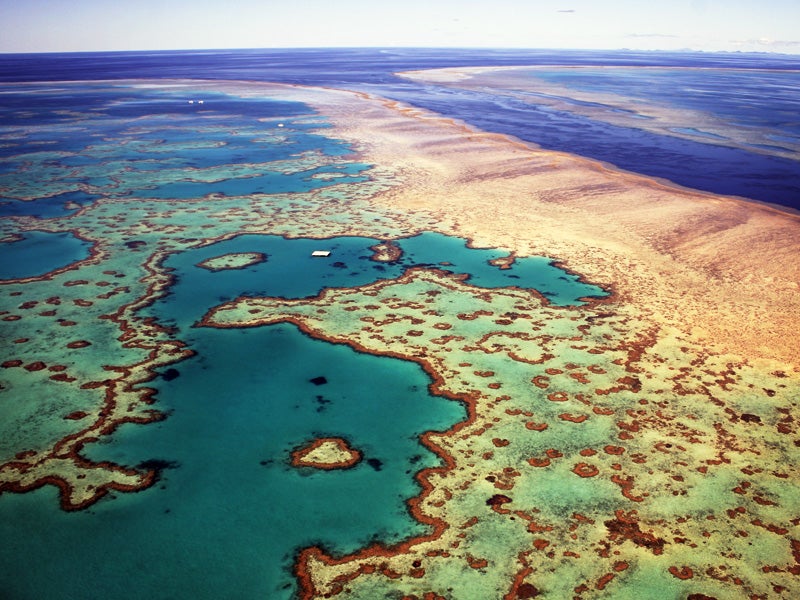International Community Seriously Concerned About Coal Endangering the Great Barrier Reef
A recent decision made by the World Heritage Committee raises significant global concern about the Great Barrier Reef’s health and what Australia is risking in exchange for profits from exported coal.

This page was published 10 years ago. Find the latest on Earthjustice’s work.
Australia, the world is watching us, and it doesn’t like what it sees.
The decision of the World Heritage Committee, made on Wednesday evening Australian time, signals significant global concern about the Great Barrier Reef’s health and what Australia is risking in exchange for profits from exported coal.
The committee recognized that the outlook for the reef is poor, and that climate change, poor water quality and impacts from coastal development are major threats to the reef’s health. It welcomed the restricting of major new port development to ensure the reef’s “future conservation.” It imposed an 18 month review of Australia’s reef management plan, when the normal periodic reporting cycle for a World Heritage site is six years.
Given these serious threats, the committee could well have gone further and inscribed the reef on the List of World Heritage in Danger. This is because the reef clearly meets the legal criteria for such a listing as demonstrated in a legal analysis released last month by Australian and international lawyers.
Certainly, if Australia fails to take stronger action to address its contribution to climate change—which scientific evidence demonstrates is one of the greatest threats to the reef—or to minimize threats posed by coal port expansion, it will remain open to the committee to list the reef as “in danger” when it reviews the reef in 2017.
The evidence is clear: Ocean acidification and warming related to climate change restrict coral growth and increase the risk of mass coral bleaching, and could ultimately affect most marine life on the reef through habitat change or destruction. Climate change also amplifies the harms caused by other threats to the reef, such as water pollution and coastal development.
Yet Australia is committed to massively increasing its coal production for export, including through the opening of new mega-mines in the Galilee Basin. Just one of these mines—the Carmichael mine—will produce up to 60 million tonnes of coal per year for decades to come to be burned in power plants, resulting in huge emissions of greenhouse gases and other harmful air pollutants.
To add insult to injury, the coal export proposals also require harmful seabed dredging in the Great Barrier Reef World Heritage Area to expand coal terminals such as Abbot Point, as well as more industrial shipping through the reef, which increases the risk of accidents and spills.
If we are to have any chance of protecting the reef for the health of our planet and so that future generations may enjoy it as we have, Australia must take stronger climate action now. It must stop the coal port expansions and Galilee Basin development, and cease the relentless promotion of unsustainable energy production.
But, for now, the World Heritage Committee’s decision tells Australia that the eyes of the world are on us, watching whether we will fulfill our responsibility to protect this special place for the benefit of the entire global community.
In these circumstances, only a foolish and irresponsible bank would be willing to finance coal export projects and risk the financial and reputational liabilities of funding the reef’s destruction.
It is time for Australia to take climate action to ensure this unique and vulnerable part of humanity’s global inheritance is not lost forever.
If saving the reef for the benefit of future generations is insufficient to motivate Australia to act, perhaps the sheer embarrassment of the world watching our actions with disbelief will be.
This blog was originally posted by Climate Spectator on July 2, 2015.
The International Program partners with organizations and communities around the world to establish, strengthen, and enforce national and international legal protections for the environment and public health.